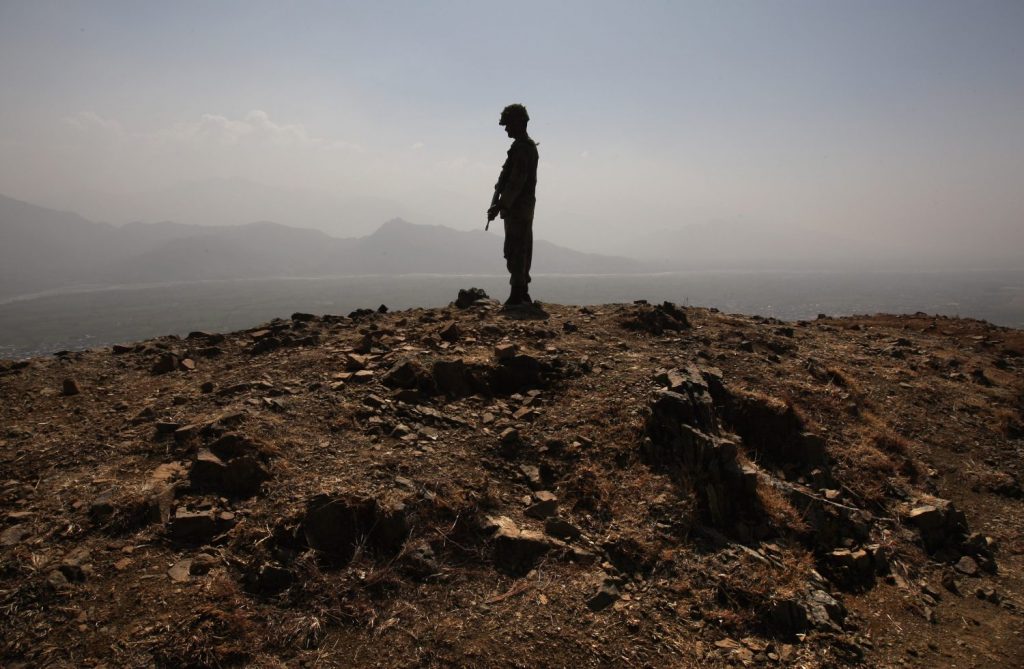 Bottom Line: Current U.S.-Pakistan relations remain strained as the U.S. maintains that Pakistan’s security and intelligence services are doing the minimum to hunt America’s militant enemies within its borders. Pakistani officials have told The Cipher Brief that they have been searching for a way to restart relations despite public humiliation by President Donald Trump earlier this year. Each side wants to keep the other from seeking alternative support – with China wooing Pakistan, and the U.S. growing closer to India.
Bottom Line: Current U.S.-Pakistan relations remain strained as the U.S. maintains that Pakistan’s security and intelligence services are doing the minimum to hunt America’s militant enemies within its borders. Pakistani officials have told The Cipher Brief that they have been searching for a way to restart relations despite public humiliation by President Donald Trump earlier this year. Each side wants to keep the other from seeking alternative support – with China wooing Pakistan, and the U.S. growing closer to India.
One of the first events that generated Pakistani distrust of the U.S. and launched what Pakistan perceived as a narrative of betrayal was in 1962 when the Kennedy administration offered military assistance to India, Pakistan’s primary regional rival, during the Indo-Sino border conflict. This was followed by an arms embargo and cessation of aid in 1965 during the outbreak of the first India-Pakistan war.
The bilateral relationship also suffered during the Carter administration when economic assistance was cut between 1977-1979 as Pakistan began its secret uranium enrichment program and again in 1990-2001 when it pursued nuclear weapons. Support was renewed in 2001 when the U.S. entered Afghanistan in its War on Terror.
A repair in the relationship led to Pakistan’s designation as a major non-NATO ally (MNNA) in 2004, granted by then-President George W. Bush primarily for Pakistan’s efforts against Al-Qaeda. With MNNA status, Pakistan gained access to U.S. military technology, surplus defense equipment and training and significant quantities of foreign aid funding.
WikiLeaks documents released in 2010 revealed how well U.S. and Pakistan were connected and cooperated – a level of cooperation that Pakistani officials had not previously acknowledged to their own public. Pakistan in reaction shut down or limited cooperation in several areas, according to former U.S. officials who experienced the blowback, speaking anonymously to describe the controversy. There had been U.S. troops embedded with Pakistani troops along the Afghan border and also serving in an intelligence fusion cell in Peshawar – many of those troops were asked to leave, and communications with top U.S. officials were limited or completely curtailed for a time.
The 2011 U.S. raid on Osama Bin Laden’s compound in Pakistan further damaged the trust between the two countries. The CIA-led raid of U.S. special operators that killed the mastermind of the 9/11 attacks was carried out without Pakistan’s knowledge.
The raid coincided with the controversy over the detention in Pakistan of CIA contractor Raymond Davis earlier in 2011. The former U.S. special operator had killed two Pakistanis he said had attacked him. The U.S. claimed he had diplomatic immunity, but Pakistani officials said he was an undeclared intelligence operative. He was eventually released after the families of the dead Pakistanis were financially compensated for the deaths.
The House of Representatives put forward a bipartisan bill to revoke Pakistan’s MNNA status on Jun. 23, 2017, with Rep. Ted Poe, R-Texas, calling Pakistan the “Benedict Arnold ally of the United States.”
While unveiling the administration’s South Asia Strategy on Aug. 22, Trump singled out Pakistan for giving “safe haven to agents of chaos, violence and terror.”
Two days later U.S. Secretary of State Rex Tillerson said Pakistan’s MNNA status could be revoked: “We have some leverage in terms of aid, their status as a non-NATO alliance partner — all of that can be put on the table.”
On Nov. 23, a Pakistani court released Hafiz Muhammad Saeed, the founder of the U.S. designated terrorist group Lashkar-e-Taiba, and alleged mastermind behind the 2008 Mumbai attacks that killed 166 people. The move was decried by the international community, especially by India and the U.S., as a sign that Pakistan is unwilling to move against terrorist groups that it perceives as assets.
No comments:
Post a Comment